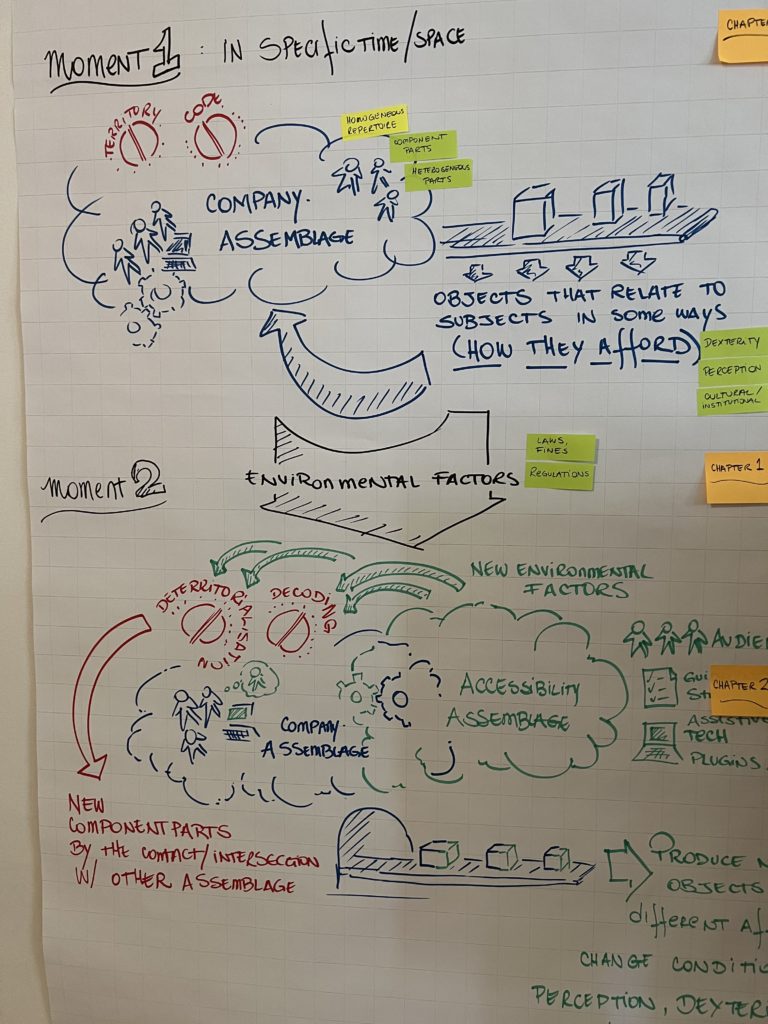MSc Social Anthropology – Stockholm University
2020-2022
Between 2020 and 2022, I attended the Social Anthropology Program at Stockholm University (Sweden), where I had the opportunity to get my Master’s degree. I researched aspects of inclusion and diversity, mainly focusing on accessibility in making digital products. The thesis title was “Digital Accessibility in the Making”.
The theoretical frameworks that ground the research were the Assemblage Theory by Manuel Delanda and the Affordance Theory by Jenny L. Davis. The research methodology consisted of 3 months of ethnographic research, through participant observation, performed within a tech company in Stockholm while incorporating accessibility practices in the work process. More than 15 in-depth interviews with design and tech practitioners were added to the study.
The research sought to explore the relations between and within assemblages and how the dynamics of “shaking” assemblages provoke instabilities, uncertainties, and reactions. As an assemblage, the company was used to working in certain ways, and its methods and outcomes reflected their characteristics. As the company lacked diversity in some aspects (like having people with disabilities), this absence was reflected in their digital products. With the introduction of accessibility practices, the company went through an accommodating process by incorporating new elements and a new vocabulary, disrupting their routine and standards.
Marks: A
This is an excellently composed and well-structured thesis written in good academic English. The subject matter is highly relevant and one that will no doubt be extremely significant in future research contexts. The author provides an excellent theoretical grounding from which to examine the data gathered during fieldwork, followed by reflexive and extremely thorough analysis supported by well-grounded ethnography. Furthermore, excellent research questions drive the thesis forward, drawing attention to the fact that the invisibility of disabled people is not solely a technological issue engrained in the design process, it is also a factor in many other sections of society, and, as the author illustrates, digital inequalities will become increasingly significant as society becomes ever more reliant on such technological infrastructure, and it is high time society as a whole as well as companies and governments address this imbalance. A truly enlightening work, thorough and to the point, with great ethnography that supports the theoretical perspectives discussed. Excellent work indeed!
Feedback received from the examiner




